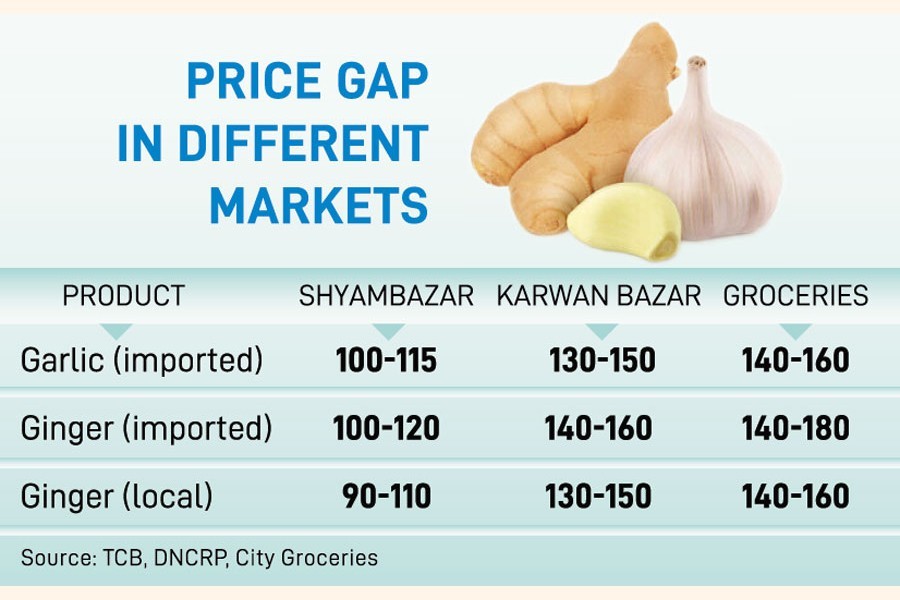Amid soaring prices of garlic and ginger in recent weeks, the consumer rights watchdog has identified a wide gap between the retail and wholesale rates of the spices in the city markets as the key reason.
The Directorate of National Consumer Rights Protection (DNCRP) has found even higher prices at the groceries.
The gap between Shymabazar wholesale and other markets like Karwan Bazar is Tk 50-70 a kg, said DNCRP official Md Magfur Rahman, who led a drive conducted in the city's key wholesale market Shyambazar on Tuesday.
Besides the price variation, lower imports and local production of the essential spices also played a significant role behind the price spiral, he told the FE, following the drive.
The price of garlic increased to Tk 130-160 a kg and ginger Tk 140-180 a kg in the city's different retail markets, marking a 20 per cent hike in a week and 35-40 per cent in a month, according to the Trading Corporation of Bangladesh (TCB) and city groceries.
Mr Magfur said the Indian Kerala ginger was selling at Tk 100-110 a kg at Shyambazar, but was trading at Tk 150-160 a kg at Karwan Bazar. The prices were even higher in the groceries, he added.
"We find no major malpractice by the traders at Shyambazar market. However, we've fined two shops for not hanging price charts," he said.
After talking to a number of traders and business leaders and observing their papers, he added, it was clear that imports have declined to some extent, affecting the market.
Contacted, Narayan Chandra Saha, a Shyambazar-based trader, said import of Chinese ginger has almost stopped and Indian 'Kerala' ginger was dominating the market.
The consumers are largely dependent on Chinese ginger and garlic, he said, adding that garlic import from China has declined drastically, resulting in the surge in prices.
Local production of ginger is not good enough that could have had some impact on the market, he said.
According to the Bangladesh Bureau of Statistics (BBS), ginger production was only 82,000 tonnes and garlic 0.52 million tonnes in fiscal year 2021-22 (FY '22).
Garlic production showed a 20-22 per cent increase in the last five years, but ginger remained almost stagnant during the period, the BBS data showed.
According to the commerce ministry, 90 per cent of the demand for ginger is met through imports while it is 40-50 per cent in case of garlic.


